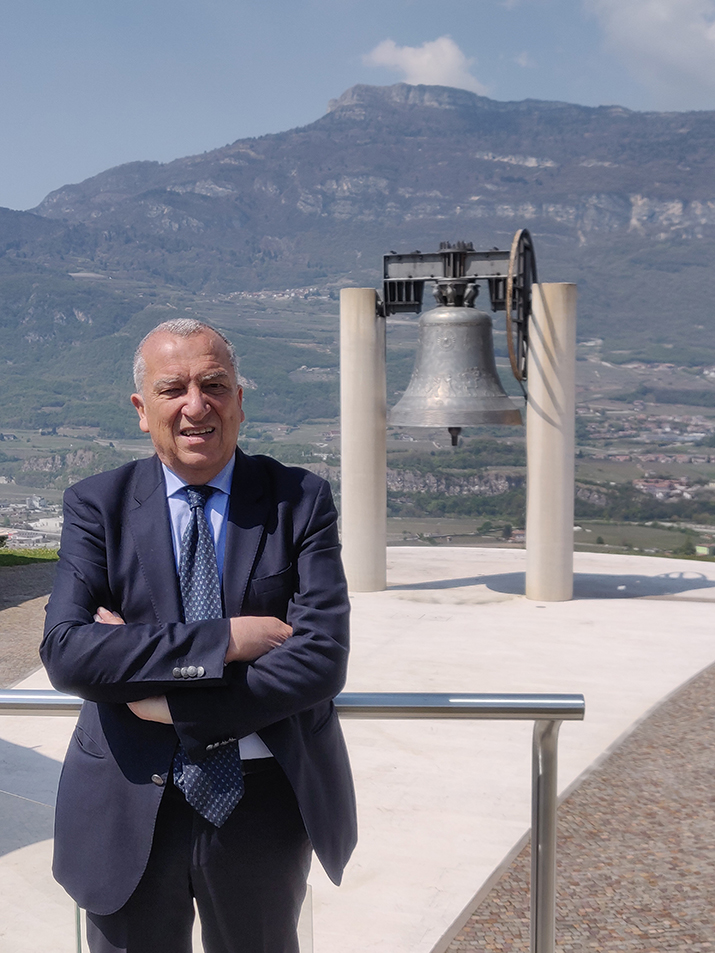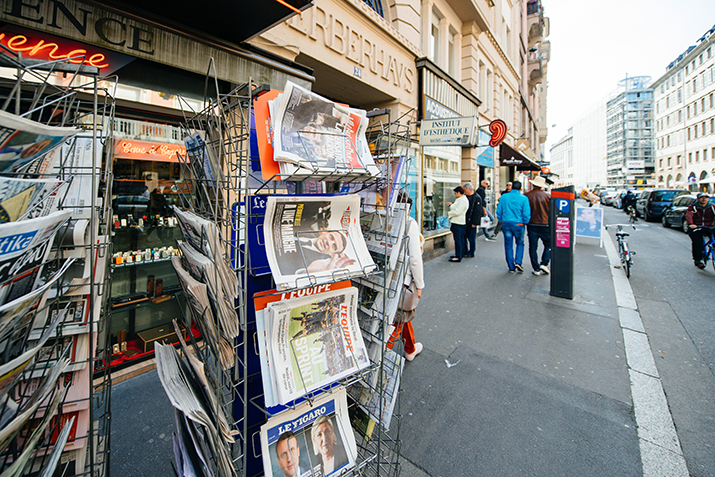For a European continent torn apart for more than three months by a devastating armed conflict and desperately looking for a negotiated solution that prevents the current crisis from taking on even more disruptive forms, one of its most representative countries, France, provided us with some awaited "good news".
In the ballot round of last April 24, outgoing President Emmanuel Macron was, in fact, confirmed in office for a further five years, clearly prevailing (although not exactly formidably) over the far-right rival, Marine Le Pen, by now a regular. The vote was characterized by a particularly high abstention rate (28 per cent), the highest in the history of the country.
At the helm of France, which is in second place in the EU in terms of gross domestic product and the only one of the 27 member states to possess nuclear weapons (the well-known force de frappe), is a recognized champion of liberal democracy and a convinced supporter of European integration. That Macron has remained - especially in these times – is a reason not only for satisfaction but also relief. The fact, then, that he considers Italy an essential ally represents an element of undoubted reassurance. Our country which is often in search of a more adequate international visibility is considered by Macron both on the bilateral level (with reference to the recent "Quirinal Treaty") and in Brussels when important choices are made by the various institutions.
In confirmation of this, let us think for a moment on the measures - as announced during the election campaign - that Marine Le Pen would have implemented, once installed in the Elysée.
They would have ranged from the progressive crumbling of community demands, replaced by the new centers of power of "sovereignism", to the relegation of civil and social rights in the name of a fearful and somewhat unclear return to « the ethics of value », to the exit of France from the integrated command of NATO, to the policy of "zero growth" applied to immigration, to a line of pronounced appeasement towards the infamous neo-imperialist designs of the Russian tyrant. We can most certainly be glad of a narrow escape ...
That said, decidedly less positive elements also emerged from the vote of 24 April. The improvement in Marine Le Pen's result first of all, from 33 percent of votes in 2017 to 41 percent today, which equates to an increase of 2 million supporters in a total pool of 13 million votes. Second, with the emergence in France of an increasingly clear electoral dichotomy, where its poorest, least educated residents in disadvantaged areas are hugely supportive of Marine Le Pen, whereas their wealthy compatriots, culturally and professionally educated and inhabitants of "privileged" neighborhoods ” are united in their firm support for Emmanuel Macron. Le Pen clearly recognizes the French overseas (residing in the so-called Dom Tom) where she was voted with a majority.
While waiting for the "third half" (for a more complete evaluation of the electoral process, in France it is in fact mandatory to wait for the results of the legislative elections, traditionally set a couple of months apart from the presidential elections), it already seems clear that in view of overcoming this profound gap (which already manifested itself - before the pandemic - through the phenomenon of the gilets jaunes) Macron must actively engage in a broad program of economic and social reforms. Among the most urgent are those relating to work, education and the pension system. As he himself highlighted as soon as the outcome of the polls was known, these measures must be characterized by their «inclusiveness» and by the commitment «not to leave anyone by the side of the road». On the other hand, the substantial number of votes amassed in the first round by the candidate of the so-called "France Unbowed", Jean Luc Mélenchon, which mostly merged in the ballot with those of the outgoing President, constitute a token to be cashed in.
The fact that a staunch supporter of European integration remained at the helm of France is a reason for satisfaction and relief
It should also be emphasized that the problem of the "two realities" cohabiting in a single nation not only represents a French characteristic but is spread slightly throughout the Continent. It is precisely the areas neglected by the state (problematic urban peripheries, impoverished rural areas, etc.) that more than others lend themselves to the incubation of xenophobia, intolerance, racism and, in the most serious cases, even of terrorism. Hence the urgent need to "reintegrate" them through targeted support plans.
In the international field, despite the fact that the French presidency within the European Union is now drawing to a close (end of June), it appears essential that Macron continues to represent, together with the German Chancellor and the Italian Premier, the leading trio called to guide the rest of Europe towards the key decisions that await it. In summary, three appear to be the most “burning” issues and as such cannot be postponed: an organic project to try to resolve the awful Russian / Ukrainian conflict, a serious policy of welcoming / integrating emigrant flows (now coming not only from the South, as in the recent past, but, more extensively, also from the East) and, finally, the implementation of an effective common defence system, attainable only with the creation of a European army. In addition, the transition from unanimity to eligible majority voting is by far the most awaited reform of the Treaties.
As a final note, a desirable change in Macron's personal attitude may also contribute to the realization of this undoubtedly demanding agenda of objectives since he is very often identified, both at home and abroad, as the arrogant "first of the class" technocrat. A less self-referential and more open approach to dialectical confrontation with others would in fact have a positive impact on his interlocutors, both French and foreign, to the full benefit of the collective, domestic and international good.
Reggente Marco Marsilli, Foundation President
The EU needs an effective common defence system that cannot be achieved without the creation of a European army









